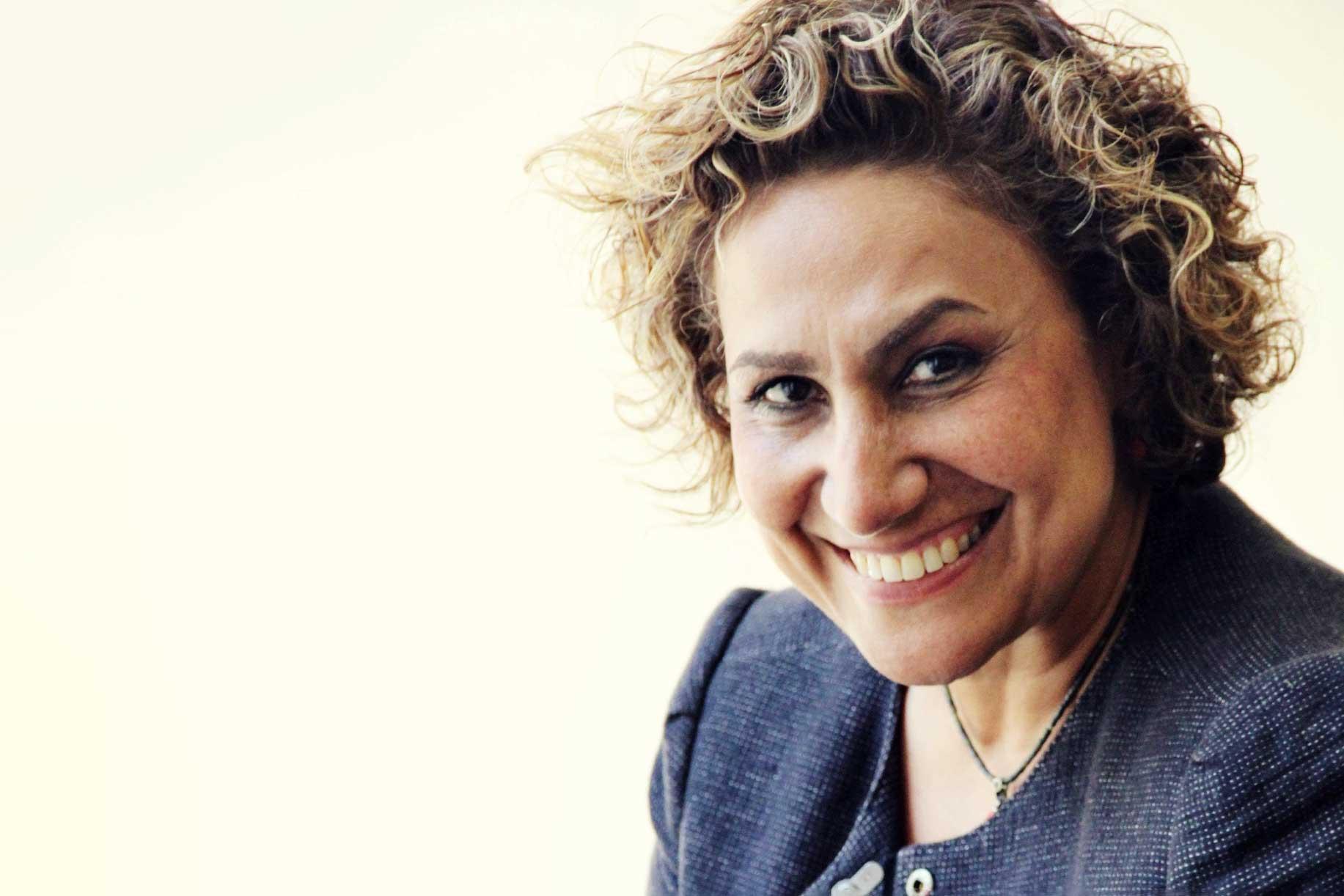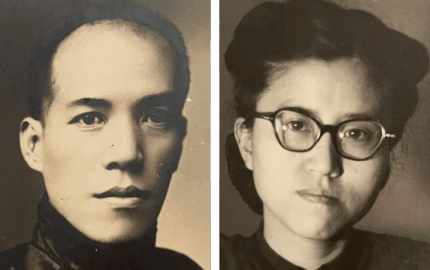Roza Eftekhari, a 2005 Nieman Fellow, died in Laguna Niguel, California, on July 20, 2021, after a lengthy battle with cancer.
For 12 years, Eftekhari served as a senior director for programs at the Institute for War & Peace Reporting (IWPR) in Washington, D.C., where she led programs focused on strengthening civil society, media development, women’s empowerment and community engagement.
As noted in a tribute written by IWPR executive director Anthony Borden: “Her training efforts made a profound contribution to regional democracy, and have played an essential role in making IWPR what it is today. She mentored hundreds of women peacebuilders and rights activists across the globe through collaborative work.”
Eftekhari was born in Abadan, Iran, in 1961. At the age of 17, she helped her community following the politically motivated and deadly Cinema Rex fire that helped spark the Iranian revolution. In 1980, when Iraq invaded Iran and Abadan came under heavy shelling, Eftekhari’s family fled the city, but she remained to help civilians evacuate and provide humanitarian support.
When the government later blocked her plans to study medicine due to her political activism, she studied English instead. In 1991, she became a founding member of the Teheran-based women’s monthly Zanan, the first feminist publication in post-revolutionary Iran. As managing editor, she focused on feminism and gender studies and created a space where women of all backgrounds were able to discuss gender equality and human rights.
Eftekhari was a fellow at the Shorenstein Center at Harvard Kennedy School in 2002 and later studied at Harvard as a Nieman Fellow during the 2004-2005 academic year. She earned a master’s degree in public administration from the Kennedy School in 2007.
She worked for a year as a program officer at the Eurasia Foundation in Washington, D.C., before joining IWPR in 2009. Her work at IWPR was a continuation of lessons learned in Iran, combining her interests in local journalism, civic activism and gender equality. In 2011 she founded Zannegaar, an online journal of women’s studies in Farsi.
In a June 2009 Nieman Reports article, Iranian Journalist: A Job With Few Options, Eftekhari wrote about her work at Zanan and the difficulties faced by journalists in Iran:
Eftekhari additionally was among the founding members of the Women’s Alliance for Security Leadership (WASL) in 2016.
Read tributes to Roza Eftekhari:
For 12 years, Eftekhari served as a senior director for programs at the Institute for War & Peace Reporting (IWPR) in Washington, D.C., where she led programs focused on strengthening civil society, media development, women’s empowerment and community engagement.
As noted in a tribute written by IWPR executive director Anthony Borden: “Her training efforts made a profound contribution to regional democracy, and have played an essential role in making IWPR what it is today. She mentored hundreds of women peacebuilders and rights activists across the globe through collaborative work.”
Iran was home
Eftekhari was born in Abadan, Iran, in 1961. At the age of 17, she helped her community following the politically motivated and deadly Cinema Rex fire that helped spark the Iranian revolution. In 1980, when Iraq invaded Iran and Abadan came under heavy shelling, Eftekhari’s family fled the city, but she remained to help civilians evacuate and provide humanitarian support.
When the government later blocked her plans to study medicine due to her political activism, she studied English instead. In 1991, she became a founding member of the Teheran-based women’s monthly Zanan, the first feminist publication in post-revolutionary Iran. As managing editor, she focused on feminism and gender studies and created a space where women of all backgrounds were able to discuss gender equality and human rights.
Eftekhari was a fellow at the Shorenstein Center at Harvard Kennedy School in 2002 and later studied at Harvard as a Nieman Fellow during the 2004-2005 academic year. She earned a master’s degree in public administration from the Kennedy School in 2007.
She worked for a year as a program officer at the Eurasia Foundation in Washington, D.C., before joining IWPR in 2009. Her work at IWPR was a continuation of lessons learned in Iran, combining her interests in local journalism, civic activism and gender equality. In 2011 she founded Zannegaar, an online journal of women’s studies in Farsi.
In a June 2009 Nieman Reports article, Iranian Journalist: A Job With Few Options, Eftekhari wrote about her work at Zanan and the difficulties faced by journalists in Iran:
“In spite of all the difficulties and volatilities that characterized my professional life, I’ve never regretted becoming a journalist and working for Zanan. It’s where I grew up—as a journalist and as a person. My work with Zanan had taken me inside people’s homes and family courts, to the coroner’s office, police stations and mortuaries, where I came face to face with the hidden and blatant inequalities of Iranian women’s daily lives. I also became familiar with Iran’s Constitution and civil code in the search for sources of violence against women. And with Zanan, I sat in meetings, roundtables and interviews with experts looking for solutions.”
Eftekhari additionally was among the founding members of the Women’s Alliance for Security Leadership (WASL) in 2016.
Read tributes to Roza Eftekhari:
- By Anthony Borden, executive director of the Institute of War & Peace Reporting
- By Sanam Naraghi Anderlini from the Women’s Alliance for Security Leadership (WASL), via the International Civil Society Action Network (ICAN)



